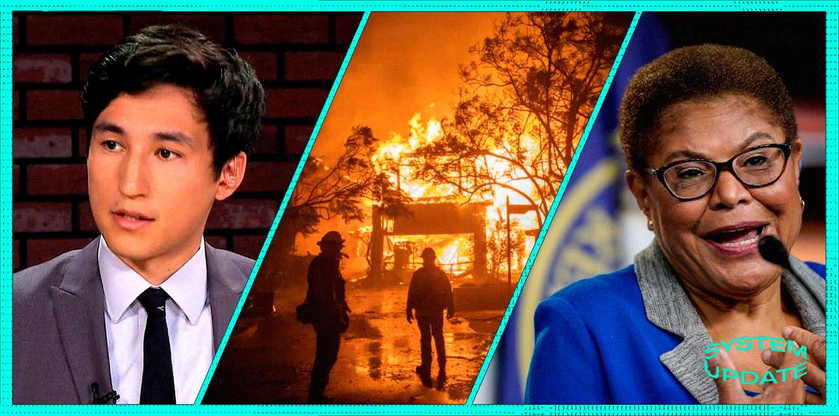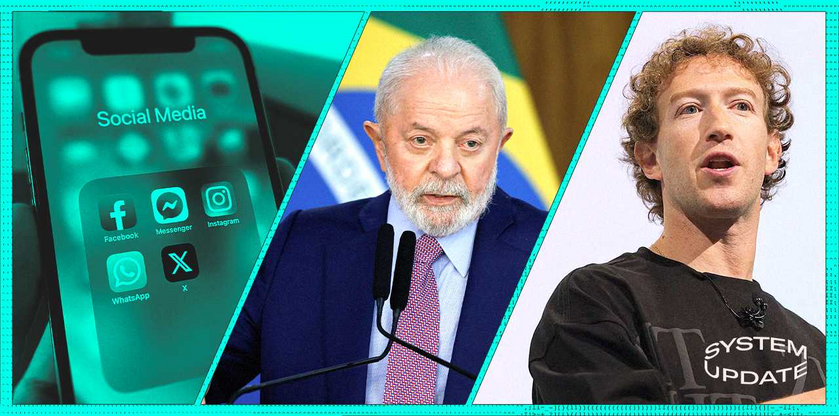The following is an abridged transcript of a segment from System Update’s most recent episode, lightly edited for clarity and readability. You can watch the full episode on Rumble or listen to it in podcast form on Apple, Spotify, or any other major podcast provider.
System Update is an independent show that is free to all viewers and listeners, but that wouldn’t be possible without our loyal supporters. To keep the show free for everyone, please consider joining our Locals, where we host our members-only aftershow, publish exclusive articles, release these transcripts, and so much more!
Independent journalist Lee Fang is a longtime colleague of mine. We worked together for many years at The Intercept, and he's also a friend of the show and a friend of mine. One of the reasons why I ask him to be here a lot is because he does the kind of reporting that has really become increasingly rare, including in all the places that claim that only they are professional journalists. He really has become a specialist in figuring out how to trace the flow of financial information and the flow of money through Washington, and how it shapes the ideology of various groups, how it shapes the willingness of politicians to change their mind, how it makes them go to bat for all kinds of lobbying groups that are shoveling all sorts of money to them.
He's been particularly digging into over the past month or so both the issue of the debate that arose, the intra-conservative, the intra-right debate, among Trump coalition factions about whether or not H-1B visas should be maintained at their current levels, whether they should be increased as people like Elon Musk and Vivek Ramaswamy have been insisting they should be or whether they should be reduced or eliminated as Trump in his first term wanted to do and as a lot of his longest-term core supporters who are true believers in the MAGA ideology actually want to do it. It seems like a very vibrant debate, a very intellectually spirited debate, which it was. But there was also a lot of lobbying, and a lot of money involved behind it, which Lee really, as usual, delved into and helped expose.
He also was a long-time resident of California and spends a lot of time focused on politics in places like San Francisco and Los Angeles and so, there's a lot of work he's done and a lot of things he has to say about the fires that are raging throughout Los Angeles as well as the behavior of Los Angeles Mayor, Karen Bass, including the fact that she was in Ghana as the fire broke out, despite having been told, according to his reporting, that these dangers were quite imminent.
The interview: Lee Fang
G. Greenwald:, it's great to see you, as always. Thanks for talking to us tonight.
Lee Fang: Hey, Glenn, good to see you.
G. Greenwald: All right. So, let's start with these fires, because it's kind of remarkable seeing these images of entire communities of a pretty iconic American city, Los Angeles, a very beautiful city, going up in flames. And who knows when this fire is going to get under control. There's been a lot of focus as there would be in this kind of an instance on officials in California, to some extent, California Governor Gavin Newsom, but especially the city's newly elected mayor, Karen Bass. She was elected in 2023, if I'm not mistaken. And she was also someone who was on the short list when Joe Biden said he was going to pick a black woman for vice president. She was one of three people with Kamala Harris, another person who was a possible vice president pick. As these fires broke out, she was nowhere to be found. She was actually on some kind of international trip to Ghana. And there's been a lot of criticism about this. You wrote an article on your Substack, which as usual I highly recommend.
Before reading your article when I first heard about this criticism of her, part of me thought, for better or worse, governors and mayors do go on these kinds of international trips. Usually, they're just opportunities to get free travel to places these people want to go but sometimes there are legitimate reasons and it was this kind of bad luck that she happened to be in Ghana at the moment these fires broke out. She couldn't have anticipated that, she came back immediately when they started to spread and so, this criticism seemed a little bit cheap and exploitative. Then I read your article which suggested that actually she probably had reason to know that she should have stayed in L.A., not necessarily that these fires happened on this day, but certainly reason to know that she had work to do that she didn't do, instead of going to Ghana. What is it that you discovered about all that?
























